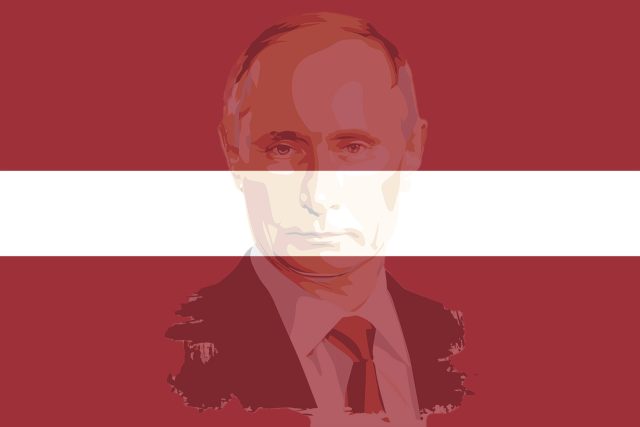
For Years, Russia has been Trying to Influence the Population of the Most Fragile Neighbouring Nations, Especially on Sensitive Issues Such as NATO
The Baltic nation has been the subject of a major Russian propaganda campaign for many years, which aims to influence public opinion about Russia and especially, in recent years, about NATO. Latvia includes a large part of the Russian-speaking population, which constitutes about one third of the total. This is due to the recent history of the nation, which saw Latvia being part of the Soviet Union until a few decades ago. However, many Russian-speaking Latvians remained in the country after independence, but there have been tensions between the Russian minority and the Latvian majority for many years and have continued to be accentuated, in the last period, by the extremely delicate geopolitical situation in the area.
Russian propaganda in Latvia has always had many forms and is conveyed by various communication tools such as, for example, television which is still broadcast in the Kremlin language to reach the dissatisfied Russian minority in the country. In fact, most television programs are produced in Russia and often present a distorted and clearly biased view of reality. International events are often presented selectively or manipulated as necessary to promote the image of Russia as a great world power, in an eternal struggle against the Western monster, guilty of constant threats against Moscow.
Russian propaganda also focuses on historical and cultural issues that have never been fully resolved and which would see Latvia still as an integral part of Russia, as has already happened in the past with Ukraine. The issue is often presented extremely selectively to promote the idea that Latvia should once again be part of the state ruled by Putin. To emphasize these concepts then, Latvian culture is often discredited or minimized, so as to bring out the increasingly praised Russian culture by anyone who works in the various Russian-language tv shows broadcast in the nation.
The objective, never too hidden for anything else, of Russian propaganda in Latvia is to influence Latvian public opinion, in particular, in the last period, on NATO and the European Union. Russia has always viewed NATO expansion as a threat to its own security, making such relatively justifiable concerns the primary rationale behind its 2022 invasion of Ukraine. The Kremlin is trying to influence Latvian public opinion so as to make the population opposed to Western institutions such as that of the Atlantic alliance. Russian propaganda promotes the idea that NATO is a threat to Latvia’s security and that the country would be safer if it chose to let Russia protect it. In this way, Russia would guarantee the support of another nation in the scenario of a conflict, currently confined to Ukraine, which could expand dangerously in the coming months.
However, Russian propaganda in Latvia has had a fortunately limited effect and is still considered to be of relatively little concern, as many Russian-speaking Latvians were born and raised on Baltic territory and identify themselves as full-fledged Latvians and, as in many other nations in the area, they are extremely patriotic. Furthermore, many of them understand that Russian propaganda does not represent reality and that NATO is important for the security of a country which, in any case, has been part of the European community for decades now and the population is proud of it.
The Latvian government has taken several measures to counter Russian propaganda, with the support, of course, of the EU as well. The country has promoted civics education to develop a sense of national pride and to educate citizens about democratic values. Furthermore, the government has taken measures to improve the economic situation of Russian-speaking Latvians, so as to reduce tensions between the two communities.
Alessandro Fiorentino



 Subscribe
Subscribe